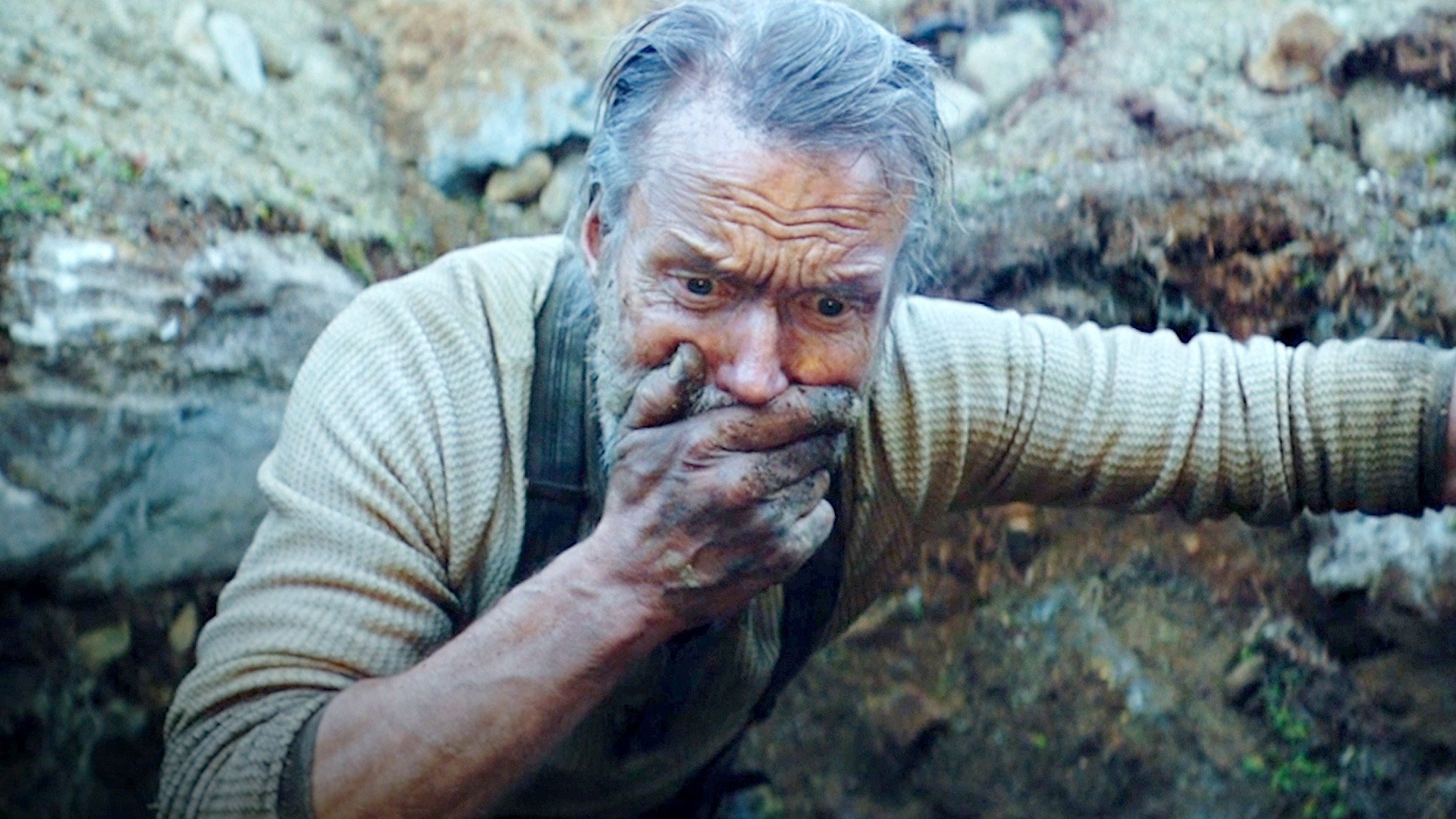Sisu | Review
Jorma Tommila in Sisu
No Country for Gold Men: Helander Scoots the Loot in B-Grade in Neo Western
By Nicholas Bell | Published on April 29, 2023
Dolph Lundgren’s Ivan Drago anointed Rocky Balboa with a bodacious and kinda kinky compliment in 1985's Rocky IV - “He is not human, he is a piece of iron.” Aatami, the omnipotent yet unassuming protagonist of Sisu, is cut from the same celestial cloth, retaining the titular, untranslatable Finnish endowment, which has something to do with a state of being attained beyond the point of hopelessness. It’s defined at the onset and later on by a gloating female survivor of Nazi torture, but the narrative’s depiction of this enigmatic word seems to suggest something like ‘hyper resiliency’ when tasked with surviving immeasurable trauma. The third feature from Jalmari Helander, whose 2010 debut Rare Exports was a wonderful Christmas nightmare, followed by 2014’s enjoyably B-grade Big Game (with Samuel L. Jackson as a compromised US president), solidifies his capabilities as a dependable architect of regurgitated genre tropes with this amalgamation of flourishes recalling directors like Tarantino and Spielberg.
Finland, 1944. After signing the Moscow Armistice with the Soviet Union, resulting in a ceasefire between these countries, Finland was obliged to (among several things) expel German troops from the country, which led to a significant standoff in their northernmost region, Lapland. As the Nazis razed the ground in their slow retreat through scorched earth strategy, Aatami (Jorma Tommila), an introverted hermit who has the distinction of being an infamous killing machine, discovers a robust gob of gold. Somewhat unaware of the country’s current wartime drama, he saddles his horse and attempts to take off to the nearest town to cash in his valuable treasure. Immediately, Aatami runs headlong into a caravan or ornery Nazis in retreat, who discover the contents of his booty and attempt to murder him. But Aatami is a man who, we’re told, ‘refuses to die,’ and Bruno (Aksel Hennie), a weary Nazi general, pursues the grizzled warrior, seeing the gold as his only feasible way out of an impossible situation.
Jorma Tommila appears to be Helander’s eternal muse, appearing now in all three of his films, this time around as brethren to Clint Eastwood’s iconic ‘man with no name’ gunslinger from Sergio Leone’s spaghetti westerns. Reminiscent of Sam Shepard as Butch Cassidy in something like Mateo Gil’s Bolivian set Blackthorn (2011), Tommila’s speechless warrior is ultimately defined through some risible exposition from a variety of supporting characters. A ‘one man death machine’ who previously wrecked a whole army of Russians single handedly (they apparently have their own nickname for him, ‘koschei,’ which means ‘Immortal One’), Aatami doesn’t seem to have the same talents in logic, as his overzealousness to get to town with his bags of gold could ostensibly have waited. The entire narrative is virtually a stand off between Aatami and Bruno, a greedy Nazi officer played by Norwegian star Aksel Hennie. It’s likely an unstated rite of passage for any vaguely foreign, blond male to portray a nasty Nazi at some point or another, and Bruno simply feels like an obligatory notch on Hennie’s belt, given there’s no characterization.
While Sisu reasonably justifies its use of accented English (it is supposed to be German Nazi’s dealing with Finnish citizens, after all), Helander’s particular interests seem to be in showcasing extravagant, gory kills, considering the film is one overtly long chase sequence. There are some exceptional sights to behold, the best perhaps being an underwater tussle wherein Aatami must slit a Nazi’s neck so he can suck the air out of his windpipe to remain submerged. But Sisu suffers from some of the same lethargy afflicting many a genre-tinged Nazi chronicle, similar to afflictions from a variety of international projects, like Adrian Panek’s Werewolf (2018), Ben Parker’s Burial (2022), or even Kevin Macdonald’s Black Sea (2014). Helander’s playful closing sequence would have been the perfect accent had it rested atop something with a little more dimension. But it’s interesting enough, and fans of Eastwood’s heyday or Charles Bronson’s eternally besotted vigilante Paul Kersey will likely appreciate the extravagant butchery.
★★1/2☆☆☆

